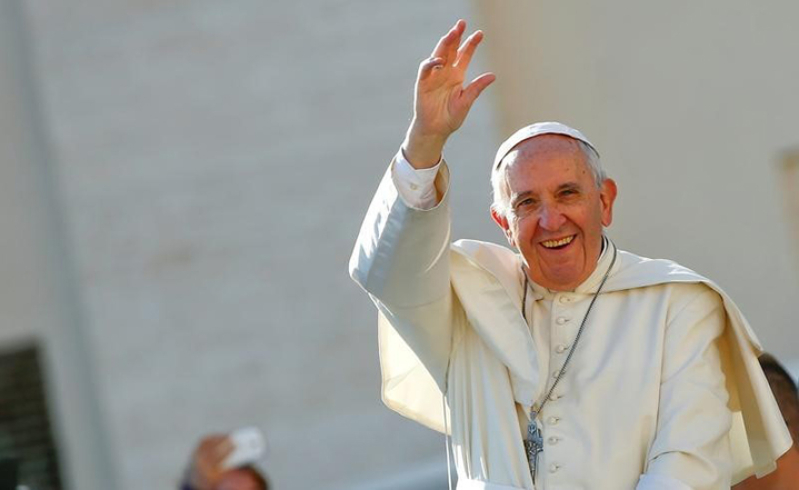
Pope Francis has acknowledged that underground churches will suffer as a result of a landmark deal between the Vatican and China on the appointment of bishops, but praised the "martyr-like faith" of Chinese Catholics and their willingness to accept whatever was decided.
In his first public comments on the deal signed in Beijing on Saturday, Francis told reporters he understands that not everyone will agree with the decision, but that he was confident in the "great faith" of Chinese Catholics.
"I think of the endurance of the Catholics who suffered. It is true that they will suffer. There is always suffering in an accord, but they have great faith," the pope said, according to the South China Morning Post.
While certain details of the deal have not yet been disclosed, reports of the agreement indicate that Chinese officials will submit a candidate for bishop to the Vatican. Speaking to reporters, Francis explained that he - not Beijing - will have final say in the appointment of bishops.
"It's not (that the government) names them. It is a dialogue. But it is the pope who will appoint them. Let that be clear," he said of the provisional agreement signed on September 22.
China's approximately 12 million Catholics have been split between underground churches headed by bishops secretly chosen by the Vatican and churches openly operating under the state-supervised Catholic Patriotic Association.
On Wednesday, Francis released a lengthy letter to Chinese Catholics, asking them to "place your trust ever more firmly in the Lord of history and in the church's discernment of his will."
"The Catholic community in China is called to be united, so as to overcome the divisions of the past that have caused, and continue to cause great suffering in the hearts of many pastors and faithful," Francis wrote, Vatican News reports. "All Christians, none excluded, must now offer gestures of reconciliation and communion."
The pontiff said he recognized the sacrifices of Catholics who have worshiped in underground churches, risking severe persecution at the hands of the officially atheist government.
"Some feel doubt and perplexity, while others sense themselves somehow abandoned by the Holy See," he wrote, acknowledging "the gift of your fidelity, your constancy amid trials."
"Had Abraham demanded ideal social and political conditions before leaving his land, perhaps he would never have set out," the pope wrote, adding, "it was not historical changes that made him put his trust in God; rather, it was his pure faith that brought about a change in history."
While some have praised the deal for ending a long-standing schism between the Vatican and China, others have expressed concern over the implications for religious freedom.
Christian Solidarity Worldwide, a United Nations-accredited persecution watchdog NGO, said that by signing the deal, the Vatican may "appear to have indirectly legitimized China's oppressive record against religious groups, including Catholics."
"CSW is deeply concerned about the timing of this provisional agreement between the Chinese government and the Vatican," CSW's East Asia Team Leader Benedict Rogers said in a statement. "While we understand some of the motivations behind the Vatican's effort toward an agreement, there are significant concerns about the implications for freedom of religion or belief in China."
"How can Vatican justify this doctrinally?" U.S. Sen. Marco Rubio, a Republican Catholic representing Florida, asked in a tweet. "They are giving a government (an atheist one) influence in choosing bishops which 'are regarded as transmitters of the apostolic line.' How does secular (and atheist) interference in that decision not break that line?"
Prior to the signing of the agreement, Cardinal Joseph Zen warned that the deal may create a schism among the local faithful and said Francis doesn't fully understand Chinese President Xi Jinping's war on religion.
"Francis is too optimistic," said Zen, 86. "The trouble is that he doesn't know the Chinese government. He doesn't have experience of a Communist regime."
"I said that, 'I'm really worried not about you, Your Holiness, but about the people around you,'" Zen said. "I said, 'The things your collaborators are doing' -- and I used a really bad Italian word, macchinando [plotting] -- 'will have tragic and long-lasting effects, not only for the Church in China, but for the whole Church.'"
China ranks as the 43rd worst country in the world when it comes to Christian Persecution, according to Open Doors USA's 2018 World Watch List.







